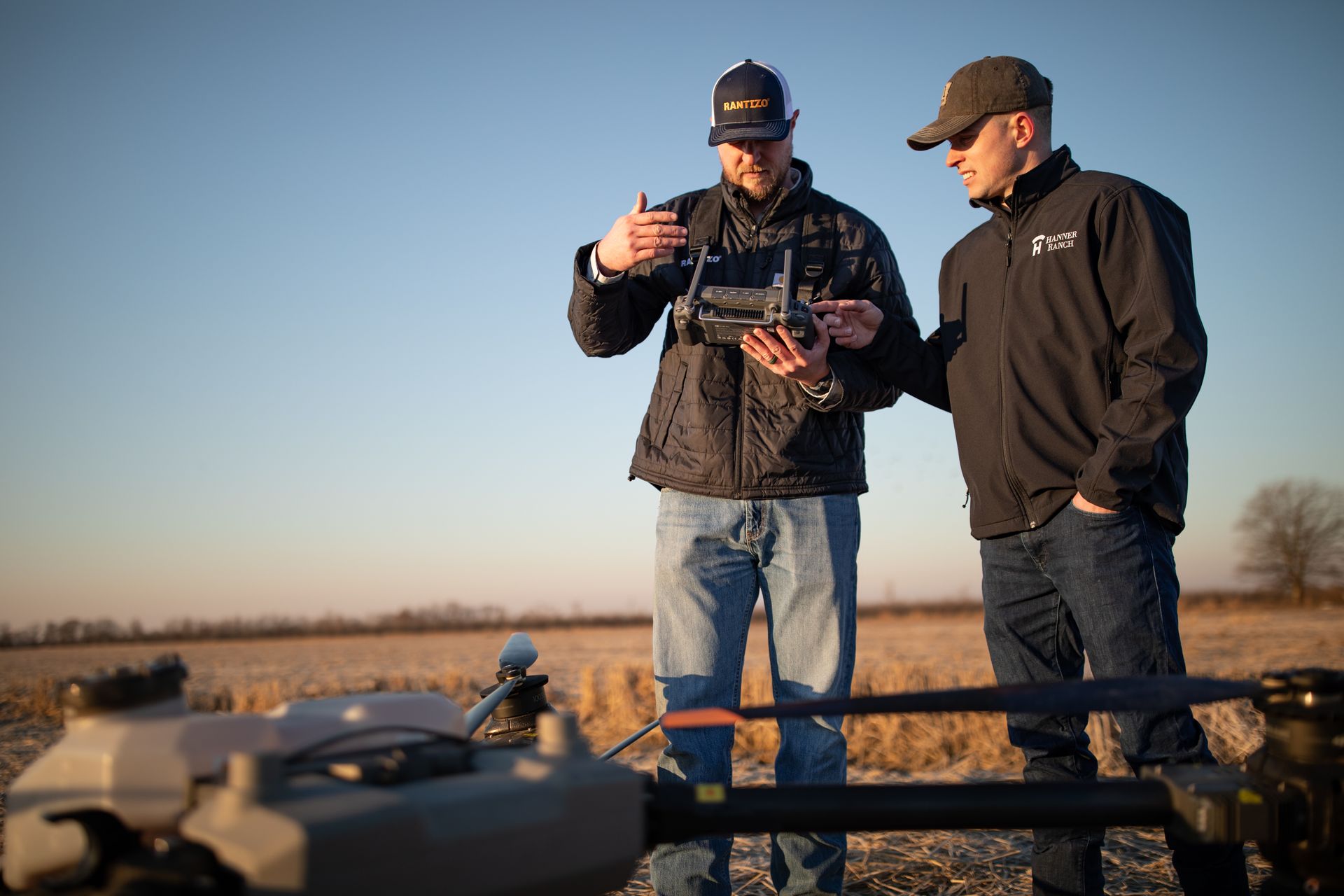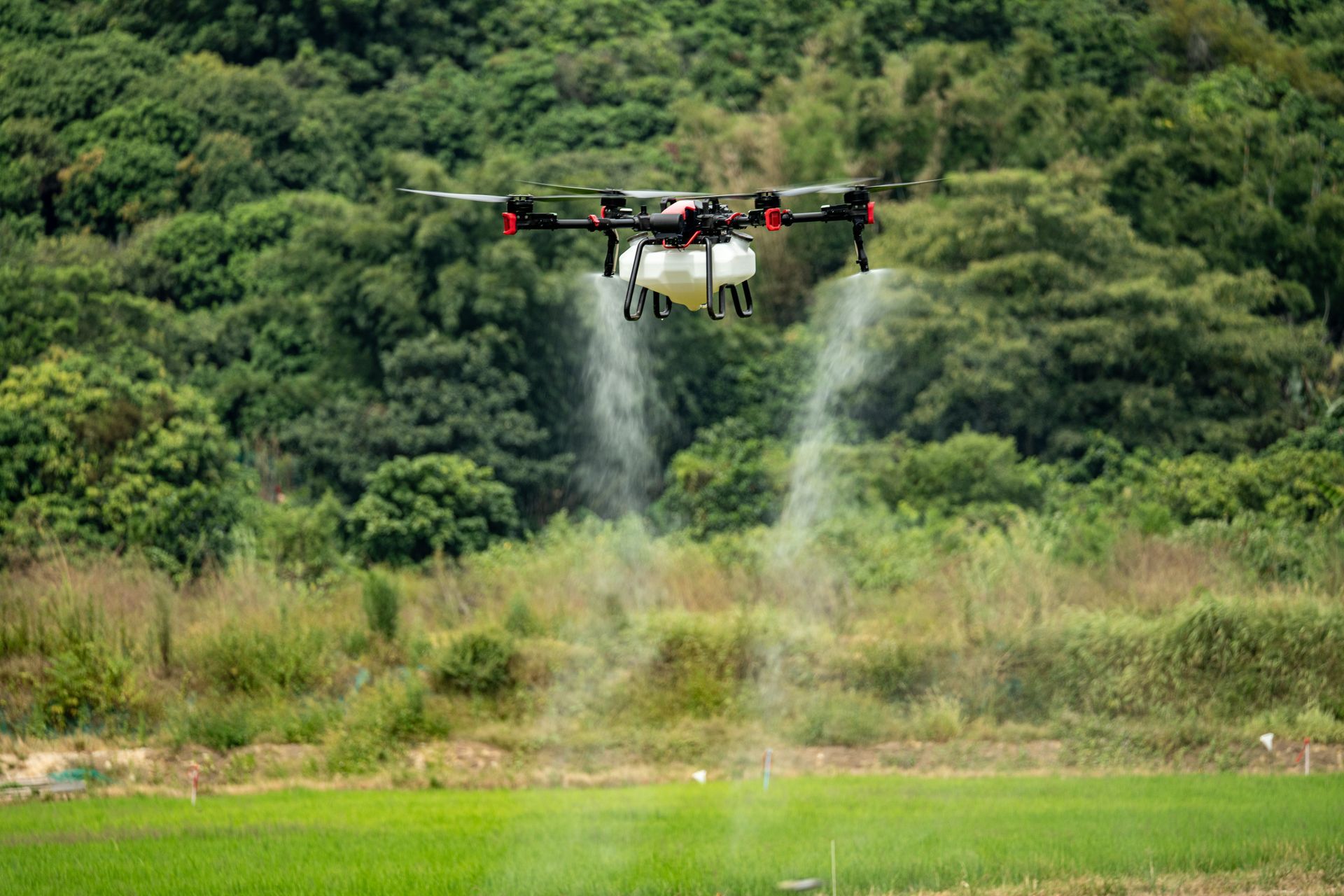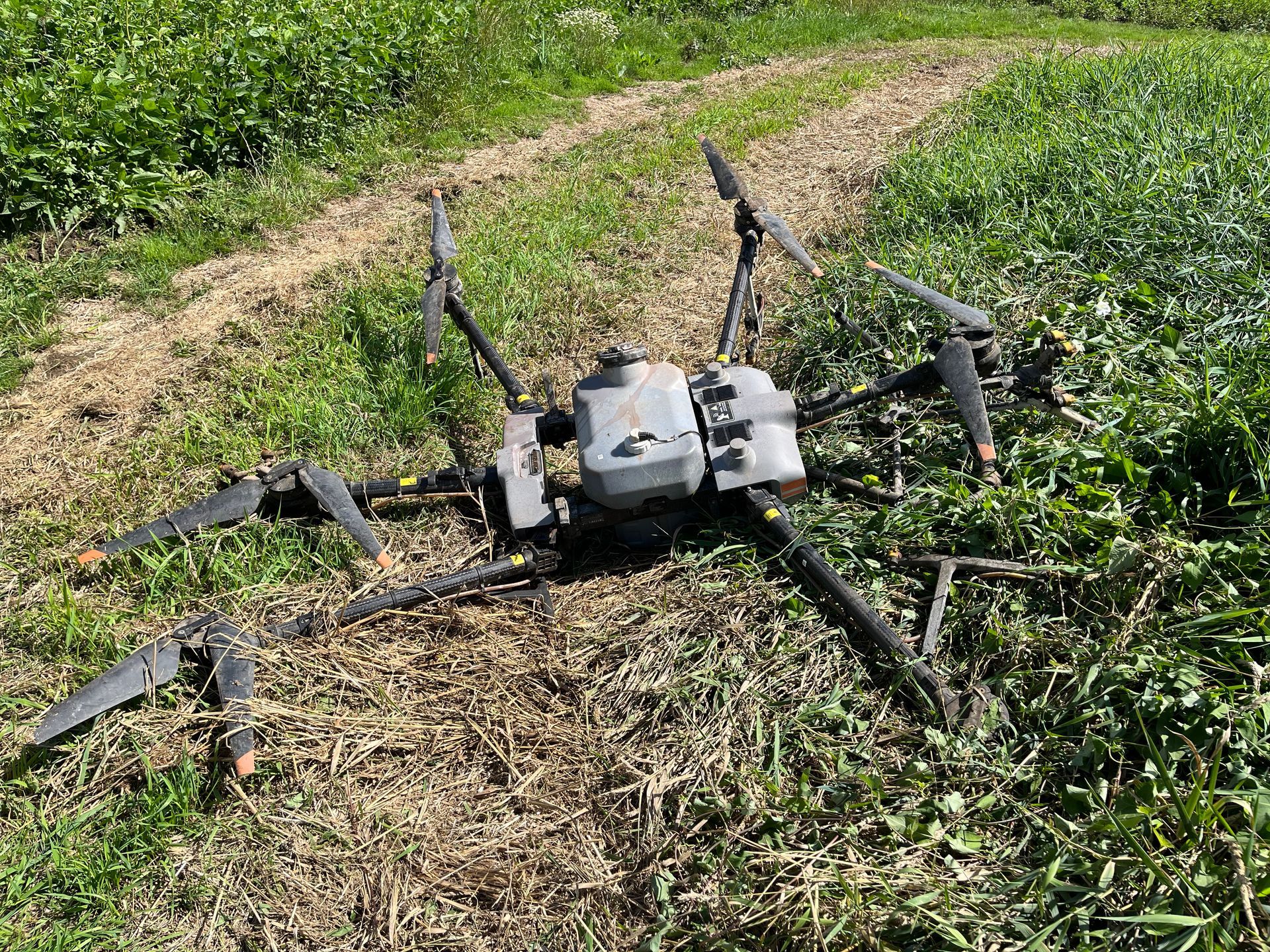RESOURCES
Why Drone Spraying Is A Smart Business Decision For Custom Applicators
Just like farming, diversification is the name of the game in keeping any business relevant and profitable. Investing in drone spraying systems and equipment is a smart business decision for custom applicators looking to broaden their offerings and do more with less.
But why invest in a drone if you have other means of spraying fields? For the same reason you likely have more than just a lawn mower in your garage. A weed eater and hedge trimmer are valuable, even though you don’t need them to simply cut the grass. All three tools, however, work in tandem to fill in the gaps where the others can’t.
The same can be said for drone spraying. Drones offer an efficient, flexible and non-intrusive way to access a variety of acres in various conditions.
There are a variety of reasons drone spraying should be incorporated into your business.
Flexibility for awkward/oddly shaped or wet acres
For small fields or irregularly shaped, helicopter or airplane spraying can be quite costly for questionable results. Drone spraying offers immediate flexibility and adaptability to awkward acres.
“Irregular-shaped fields are common for applicators to deal with. In fact, almost everyone encounters them in some capacity,” says Emily Carlson, director of marketing at Rantizo. “These acres can really stifle productivity for anybody. But a drone is designed for the required precision to cover those fields balancing effective results with efficiency to get the job done.”
Weather plays an important role in application timing. Even if the weather is perfect for aerial application, a wet spring could still limit productivity.
“With a traditional ground machine, a custom applicator could be rained out for as many as four days waiting for the field to dry,” says BenEtsinger, a Rantizo regional sales manager. “While a drone can’t keep up with the acres of a ground rig, it can be used as an immediately available tool when conditions won’t allow a rig.”
Drone spraying uses outside of production agriculture
While many custom applicators have ties to row-crop agriculture, many are starting to use drones in a way that doesn’t tie them to a crop. Diversifying a drone spraying business can bring in more customers, dollars and opportunities throughout the year.
“I’ve seen applicators use drone spraying for controlling mosquitos, spraying golf courses, managing water bodies and other innovative ways to create revenue streams outside of traditional agriculture,” says Etsinger.
Joining Rantizo in early 2021, Etsinger reports seeing applicators use drones for unique specialty crops or controlling invasive species in marsh areas or retaining basins. He also reports some Midwestern applicators partnering with duck-hunting organizations to manage hunting grounds.
“For applicators wanting to branch outside of agriculture for a consistent revenue stream year-round, drones will deliver that return on investment (ROI),” he says.
Another unspoken benefit applicator businesses should consider is employee retention.
“A drone can ensure an employee’s experience is a positive one,” says Carlson. “If you’re doing everything you can to take those productive, difficult acres off their hands, you’re more likely to retain them while giving them the tools to be most successful in their role.”
Return on investment with the Rantizo system
While purchasing a drone comes with a price tag, it’s not a $500,000-or-more investment. This alone contributes to a much-quicker ROI. Investment in a drone and flying certification comes in at around $40,000-$50,0000. How quickly can an applicator recoup that investment?
“If you’re making an average of $15 per acre, working five days a week at seven to eight hours per day, running the drone spraying service four to five weeks out of the year and covering 20 acres per hour, you can recoup that cost in just four to six weeks,” shares Etsinger.
How much an applicator can charge depends on what geography they are servicing. Iowa-based applicators might not pay quite up to $15 an hour, but places like Indiana and further east will pay as much as around $20 per acre. Applicators should think about where they can capture the most acres per day.
Carlson says profit also simply comes down to how you operate your business. A smart marketing plan makes the difference in your ROI.
But how can a new custom applicator market their services?
“I encourage my customers to partner with local, well-respected and well-followed agronomy consultants that can promote your services to their growers,” says Etsinger. “With a handful of introductions, you’ll likely have more acres than you’re willing to commit to.”
But before you get to flying, applicators can leverage the Rantizo system for help obtaining drone spraying licenses. Rantizo prioritizes abiding by rules to ensure legal application with every applicator. A total of four licenses are needed.
“If an applicator wants to come on board with Rantizo, the licensing process is a big differentiator,” says Carlson. “On your own, the licenses and certifications alone could take years. By then your competition has passed you by.”
Simplicity after a learning curve
While ROI can come quickly, don’t expect a swift ride to pilot expertise. A DJI Agras T-30 drone can average ~18 acres/hour (at a 3-gallon per acre rate), but in the first week or two of use, expect to be happy with five acres per hour.
Etsinger says these tips can help applicators improve efficiency:
- Prepare and get into place before peak application season. Train and fly to get experience under your belt.
- Don’t rush. You’ll have a less positive experience.
- Practice setting up the drone before spraying and the pre-season maintenance required each year.
- Learn the workflow and aspire for comfortability in managing the drone in a variety of conditions.
“ Life becomes more enjoyable and care for crops becomes easier with a drone in the toolbox,” says Etsinger. “Fill in the gaps, preserve the soil and do it the right way with the Rantizo system.”
Interested in adding drone spraying to your business toolbox? Contact the drone experts at Rantizo for more information.
The post Why Drone Spraying Is A Smart Business Decision For Custom Applicators appeared first on Rantizo.
share this
past blog posts
Related blogs

Contact US
How can we reach you?
Keep up with all the latest Rantizo news including: product releases, upcoming events, drone spraying industry tips, and more!



